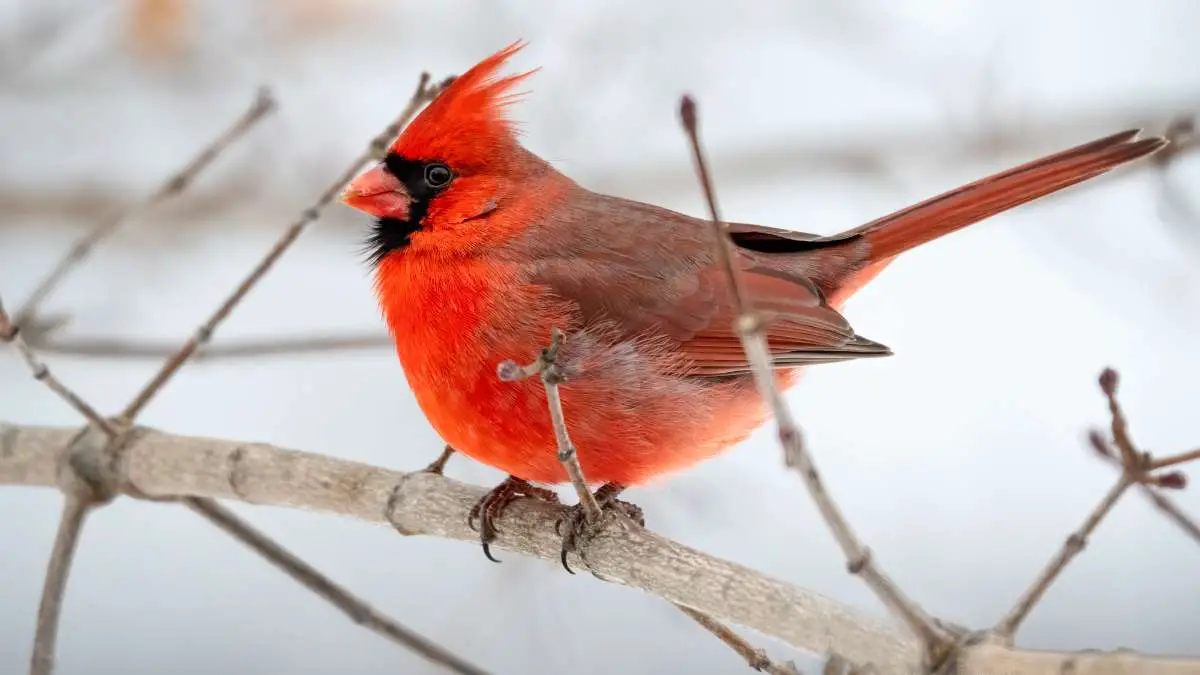Have you ever wondered how expert birders quickly and precisely identify birds just from a mere bird call or seeing it just for a second? This was magic to me when I started birding back in 2001.
Eventually, I learned to ID common birds by myself, but it needed greater effort and experience to ID rare birds and develop myself to the level where I am now. I think my learning curve was comparatively shorter due to two main reasons. First was my commitment and the second was how I prepared myself to learn bird identification quickly.
I believe you too want to develop the skill quickly as possible. If so, you can read through to learn the 11 best tips to improve your birding skills and become an expert in the shortest time possible.
For birding, sharpening your senses is key. Once you engage with bird watching your vision and hearing will be the most important faculties you need to develop further. It helps to detect the presence of birds.
Most of birds are highly vocal animals. They are easy to find in outdoors compared to other animals. And, most of them are colorful and you won’t miss them in the greenery out there.
But there are some birds in the nature (Snipes, Frogmouths, etc.) which are quite silent and well camouflage, thus make it bit challenging for us to find them. Those birds are more often been identified from their calls than seeing.
So, you must sharpen your vision and hearing to catch them and enjoy the innate behaviors of them.
Here are the 11 best tips that will help any birder to improve their birding skills to become an expert birder.
- Do eye relaxing exercise daily to sharpen your vision
- Use color therapy to enhance your eyesight
- Train your eyes with camouflaged animal photos
- Practice alertness with surrounding sounds
- Exercise play and judge activities with different bird calls
- Reduce use of headphones or earphones
- Take mineral and vitamin rich food
- Practice mindfulness (focusing power)
- Engage in memory recall activities
- Practice to be silent and still
- Have a coffee (or tea) before birding to keep you alert
TIPS TO IMPROVE VISION
Vision is the most important aspect of bird watching and you have to pay lot of attention to keep your vision in good state if you want to enjoy birding at any age. And also, most of the time you need to use binoculars or spotting scopes to watch birds where you need to cope with lenses outside you.
But your own lenses, your eyes, are the most important gift to protect. Most of the birders have complained that they cannot see or spot birds due to poor vision and easily get disappointed. This is a result of not giving necessary attention to maintain eye health.
Here are simple ways to maintain and improve your vision.
Tip 1 – Do Eye Relaxing Exercises Daily to Sharpen Your Vision
Use an eye chart hang in a place where you frequently looking at in your room. By doing this your eyes naturally begin to focus on fine details. And, in cases where there is any eye defect, it can be identified at the early stage and will be able to consult an eye specialist (medical doctor) before the problem get worse.
It is good to sleep in a dark room without an even a dimmed light. It is a 100 % resting for the eyes after 12 to 18 hours of continuous working time.
Never ever use bright screens such as mobile phones while you are on the bed. Put them aside at least 30 minutes before you sleep. Exposure to any kind of displays during bedtime prevent the secretion of ‘melatonin’ hormone from the pineal gland and affect the natural circadian rhythm.
Good sleep will help you to recover damaged cells in the body to repair and refresh, including your eyes.
Do very simple exercises to your eyes such as blinking eyes for at least one minutes. This will increase wetness of the eyes, clean them and increase blood circulation.
Rotate your head side by side, up and down and in a circular motion without moving the eyes. This can be done first by focusing eyes on a small spot on a wall or board and then lock eyes on the target and move the head. This will stimulate most of the eye muscles and develop the moveability.
Then you can move your eye balls to draw hypothetical “cross”, “M”, “W”, “O”, “Z” and “square” shapes without moving your head.
Tip 2 – Use Color Therapy to Enhance Your Eyesight
Different shades of green color can be used to heal your stress on retina and improve your eyesight. By looking at green color you can improve the health of your retina and by that your vision will be enhanced.
Most fun fact is that you can heal your vision by looking at your laptop. For that, a desktop or mobile phone can be used. You can use plain green color image to look at for 3-5 minutes per day.
Do this in the morning without any other thoughts in the mind but focus on the green color and do not use CRT (Cathode-ray tube) monitors for this. And also adjust your display settings with average brightness and contrast values. By doing this simple task you can boost the nervous system linked with eye and brain.
To Sharpen your vision good diet is essential. Because of that try to balance your daily meals by adding nuts and legumes, seeds, citrus fruits (for vit. C), leafy green vegetables, carrots, sweet potatoes, eggs and small fish and also remember to intake daily need of water 3.7 L as stated by U. S. National Academy of Science, Engineering Medical Institute.
Hydration your body with correct amount of drinking water avoid dry eyes. If you are a person who use LED/ LCD monitors more than 5 hours per day, always used to look far horizon once every 20 mins for 20 second to relax your eyes.
In the evening do some eye relaxing exercise to relax and activate all of the eye mussels around the eyes. Close your eyes and relax with deep breaths. All of those will help in eye relaxation.
Tip 3 – Train Your Eyes With Camouflaged Animal Photos
When biologically or ecologically speaking, the primary task of body colors of a bird are to attract females during the breeding season, and to protect them from predators. Thus, when they live within their natural habitats (not in cages), it is quite challenging to identify them unless they move or call.

Birds with green color which are stay among tree branches and birds with dull colours like brown, black and white which live on forest floor are difficult for a beginner to spot.
But if you train your eye with camouflage wildlife photos to find animals, it will help you to detect very fine scale differences among similar looking backgrounds and will be able to distinguish the camouflaged animal within an environment which it blends with.
You can simply google ‘camouflaged animals’ and you can find many photos. Those can be used to train your eyes. This will help you to stimulate your eyes to detect hidden animals once you really in the forest or any habitat to look for birds.
TIPS TO IMPROVE HEARING
Birds are vocal animals and they produce quite distinctive calls and songs which can be used as identification cues with promising results. Thanks to modern day technology, we can record even the finest bird calls and store those recorded files online to help any birder and researcher to develop their bird identification skills over time.
Currently there are more than 600 thousand bird recordings which cover more than 10,000 species through out the globe which are freely accessible to listen and learn. So, maintaining your hearing to the finest level is very important as a bird watcher. Following tips will be useful for you to fine tune your hearing abilities.
Tip 4 – Practice Alertness with Surrounding Sounds
Go outside in the early morning and stay focus on the different sound patterns naturally occurring around you. You can do this in your backyard as well.
Maintain your presence of mind on those different calls and try to orient your eyes towards each and every natural sound source to detect the source of sound. This could be a bird, squirrel, insect, a bee, a flowing stream or tree branches rubbing together.
For some people it is bit challenging to find out the direction from which the sound is coming due to some birth defect. Not all of us are having balanced hearing ability in our both ears. Because of that orientating towards the natural sounds is important to find out about your hearing ability at the first place. If you find any difficulties to find sound emitting directions or any other difficulty on hearing, you should consult a doctor and maybe you can use hearing assistive equipment to solve the issue.
Once you learnt how to stay focus on surrounding sounds, try to list down different bird calls you hear with the time. You can use online bird sound repositories like Xeno-canto, AVoCet avian vocalization center or Merlin bird APP to get to know about the bird calls commonly occur in your area.
By doing that you will be able to train your ear to identify each and every bird species within your area with time. With that skill, you will be able to tell the birds’ names without seeing them, just like a professional birder.
If you find any difficulty to remember those bird calls, don’t worry at the beginning. Eventually you will develop the skill if you keep tracking them with the help of online bird call repositories. Practice makes you perfect.
Tip 5 – Exercise Play and Judge Activities with Different Bird Calls
You can download and maintain your own bird calls and song library and also you can record bird calls from your smart phones. Most of the latest smart phones are capable of recording ambient sound for average use.
Then you can randomly play those recorded or downloaded bird calls and songs of different birds and you can judge which species they are. It’s more fun if you have a like minded friend to challenge on bird identification by sounds. Engaging these kinds of activities increase the network stability in the neuron connections in the brain which are responsible for sound identification in the auditory cortex.
There are specific YOGA postures which enhance the hearing ability like ‘Cobra’, ‘Downward dog’ and ‘Tree’ postures. Rotating head as an exercise will increase the mobility of the fluid inside ears which stimulate ear muscles and nervous system.
Tip 6 – Reduce Use of Headphones or Earphones
Frequent use of headphones and earphones, and hand free Wi-Fi units may reduce your ear sensitivity. It has found that use of those equipment cause noise induced hearing loss, tinnitus, dizziness, excessive ear wax, etc (learn more).
Thus, it is good to reduce use of headphones, earphones and other high decibel sound producing equipment to maintain better hearing.
Tip 7 – Take mineral and vitamin rich food
If you can enrich your daily meals with food such as bananas, lentils, beans, broccoli, dark chocolate which contain potassium, folic acid, magnesium, zinc and vitamin B, you can boost your hearing health. Good food habits are essential to keep your senses intact.
And, when it comes to bad habits which effect on our hearing, smoking is apparent. Thus, it is good to get rid of it. Additionally, if you are a person who has ear wax than an average person, cleaning ears is necessary as well.
TIPS TO IMPROVE MIND POWER
Tip 8 – Practice Mindfulness (focusing power)
Practice a simple breathing exercises to maintain your ability to concentrate your mind. This will enhance your alertness once you are in outdoors, specially to detect bird calls and songs and wing flapping (wing beats).
Most of the birders like to do birding during the morning half of the day. Thus, you can do a simple mind exercise such as counting your breath for 10 minutes. Once you do this your brain come to an ‘Alpha’ state which will help also to boost your physical activities as well.

A simple meditation will also eventually assist to sharpen your five senses. Once you have a calm and balanced mind, you can both enjoy the birds as well as the nature.
Tip 9 – Engaged in Memory Recall Activities
Your memory also helps you to enhance your sensory perceptions since all the sensory inputs you collect from the eyes and ears (shape and color of birds, exact locations of birds, behaviors of the birds, calls and songs of birds) permanently store inside your memory.
But some of us may find difficulties to recall those memories when needed. So, doing memory boosting activities are also helping in birding greatly.
Tip 10 – Practice to be Silent and Still
Most of the birds are adapted to detect slightest changes in the ambient environment which are unnatural and threat to them. Those birds identify humans (basically our erect posture) as threats thus try to get away or hide once they see us.
So, we have to either blend to the natural condition or hide ourselves from the bird in order to yield the maximum results from bird watching. You can use camouflage cloths to blend with the nature depending on the environment you are in and you can use bird hide to hide yourself from birds in similar to most of the bird photographers do.
For both methods, it is required to be silent and still. Ability of mine to be silent and still has yielded me best results where even the most elusive and shy birds (such as wild Peacock Pheasant) came very closer to me (just ~ 2-3 m away from me) and those situations are unforgettable memories for lifetime.
It is a good practice to turn off or put to silent mode/ flight mode your smart phone while you do birding. But if you are using eBird or any other assistive APP, you can just use silent mode of the phone. Because birds can easily be distracted by phone ringing and you may lose a golden opportunity if your phone rings when you about to spot a very rare elusive bird in a forested habitat.
Tip 11 – Have a Coffee (or Tea) Before Birding to Keep You Alert
Caffeine enhance the central nervous system functioning and stimulate well energetic signal transfers through neurons and also it blocks the adenosine which promote sleepiness in our brain.
Once you have a cup of black coffee or tea (green tea is best), it will help you to stay very sharp and focus on the activity you want to perform. Therefore, I recommend having a coffee before you go birding which will help you to get satisfactory results.
So, I have shared my personal experiences and tips I practically used to sharpen my senses towards nature, and I think these tips will help you to improve your sensory abilities to become a better birder. And if you are just starting bird watching, you can read tips for beginner birders from here.





